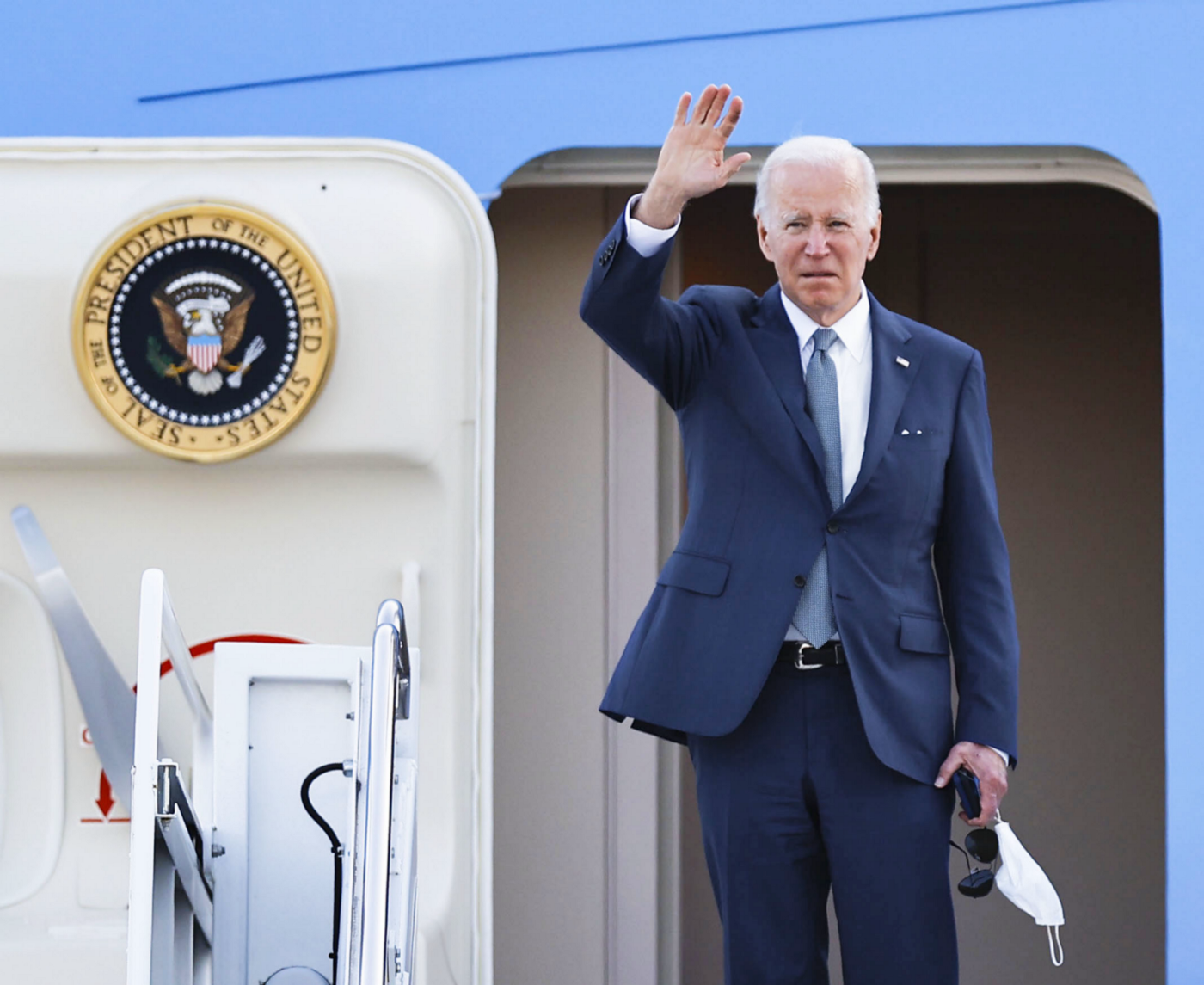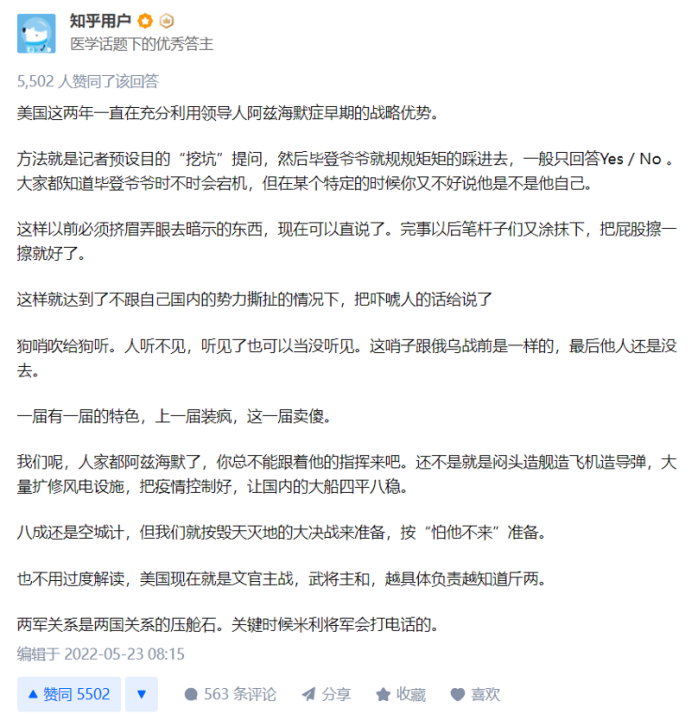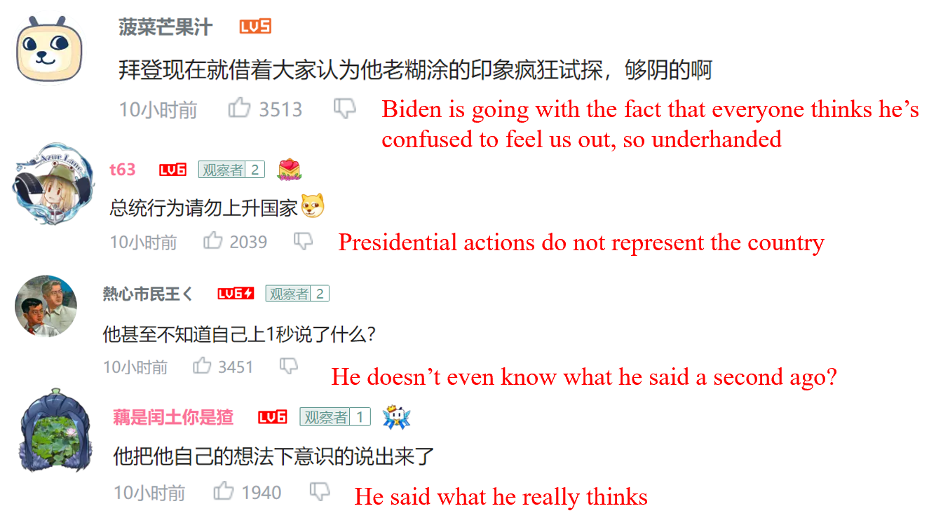Chinese netizens accuse Biden of using gaffes as a “strategic advantage”
Chinese social media accounts disparaged the US president by claiming Biden intentionally weaponizes his verbal gaffes.
Chinese netizens accuse Biden of using gaffes as a “strategic advantage”

BANNER: US President Joe Biden departs Japan on May 24, 2022. (Source: Reuters/Kyodo Pictures)
US President Joe Biden, who is commonly referred to on Chinese online platforms as “Sleep King” (睡王), stated on May 23 during a visit to Japan that the United States “was willing to get involved militarily to defend Taiwan.” His comments were a departure from the US’s strategic ambiguity over Taiwan. While Biden later clarified that US policy towards Taiwan had not changed, analysts debated whether his earlier declaration was intentional or not. Among Chinese netizens, though, it was disparaged as proof that he intentionally weaponizes his verbal gaffes.
Biden is not the first US president to receive a nickname from Chinese social media users. For example, former US President Donald Trump was known as the “Knowing King” (懂王) due to his habit of claiming that “nobody knows more about [a topic] than I do.” In China, the moniker “Sleepy Joe,” which Trump utilized against Biden during the 2020 election cycle, has morphed into “Sleep King” on Chinese social media platforms. Chinese netizens use the nickname to spread unsubstantiated claims that Biden is suffering from cognitive decline, to mock his occasional stuttering, and to make unfounded allegations that he is incontinent. These labels and rumors are a popular way to undermine his image. The nickname has also been shared by Chinese state media.
Zhihu, a question-and-answer platform that serves the same function as Quora, hosted a question thread related to Biden’s Taiwan comments that has been viewed more than four million times. The top commenter stated, “The US has always been using the leader’s early dementia as a strategic advantage.”

The author of the Zhihu comment argued that since everyone knows “Grandpa Biden periodically breaks down” and “isn’t himself” sometimes, so he can get away with threatening discourse. The account claimed that previously the US could only hint at its true foreign policy, but now it can declare its actual intentions aloud. The post then crassly stated that Biden could “have his ass wiped” with a clarification and get away with it.
“Each administration has its own idiosyncrasies,” the commenter continued. “The last one pretended to be crazy; this one’s pretending to be stupid.” It concluded by calling Biden’s threat a bluff and assured Chinese users that the US military command would prevent Biden from acting on Taiwan. The comment received over 5,500 “agreements,” the Zhihu equivalent of likes on Facebook or Twitter.

Similar accusations against Biden were made on other Chinese social media platforms. The most popular comments on the Chinese video-sharing service Bilibili espoused views similar to the aforementioned comment on Zhihu.

On Weibo, several hashtags related to the Chinese Foreign Ministry’s response gained traction, but hashtags related to the Biden incident did not break into the top 10 trending hashtags. Another hashtag related to Taiwanese pop culture, #台湾偶像剧收视前十# (“top 10 Taiwanese Idol shows”), topped the trending hashtag list. Since Weibo’s trending hashtags are heavily moderated, this could be have an intentional decision to distract users from Biden’s Taiwan comments.
Cite this case study:
“Chinese netizens accuse Biden of using gaffes as a ‘strategic advantage,’” Digital Forensic Research Lab (DFRLab), May 26, 2022, https://medium.com/dfrlab/chinese-netizens-accuse-biden-of-using-gaffes-as-a-strategic-advantage-174c99acbf3f.

